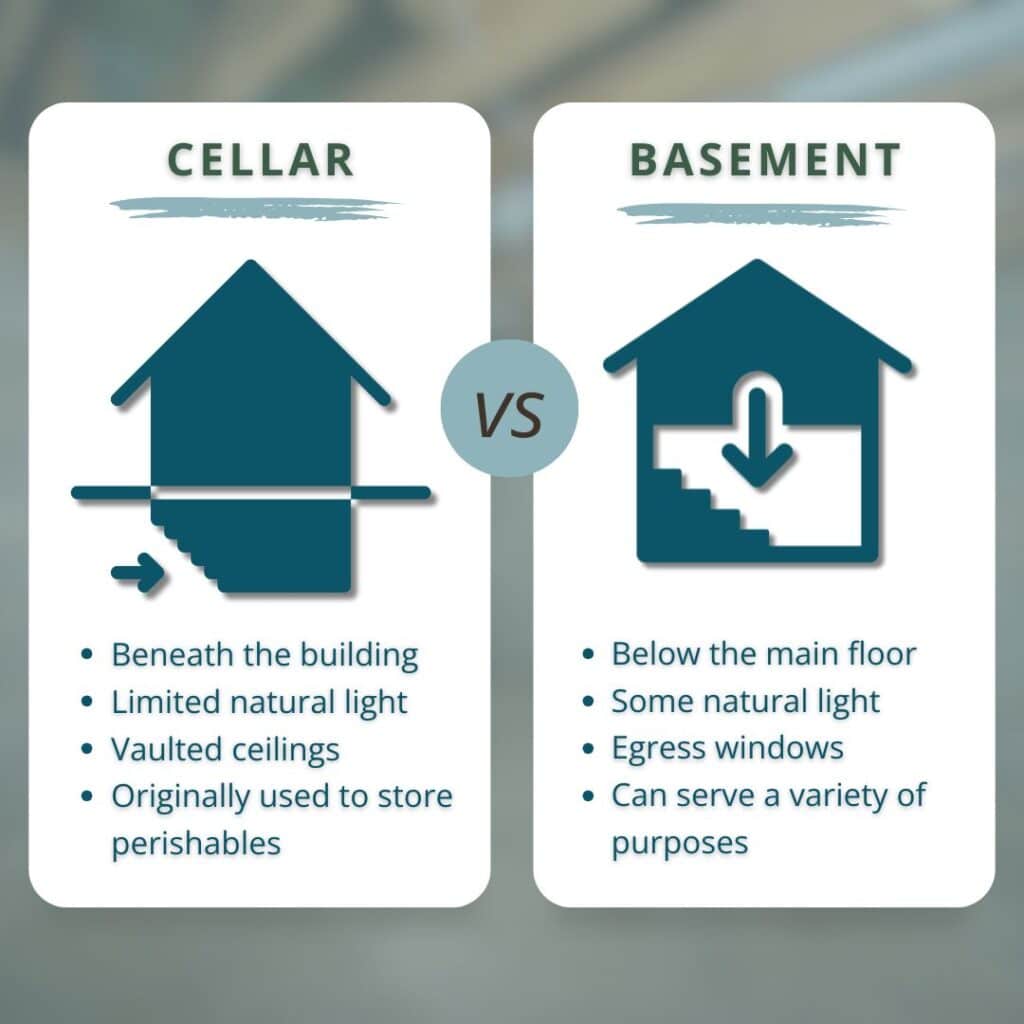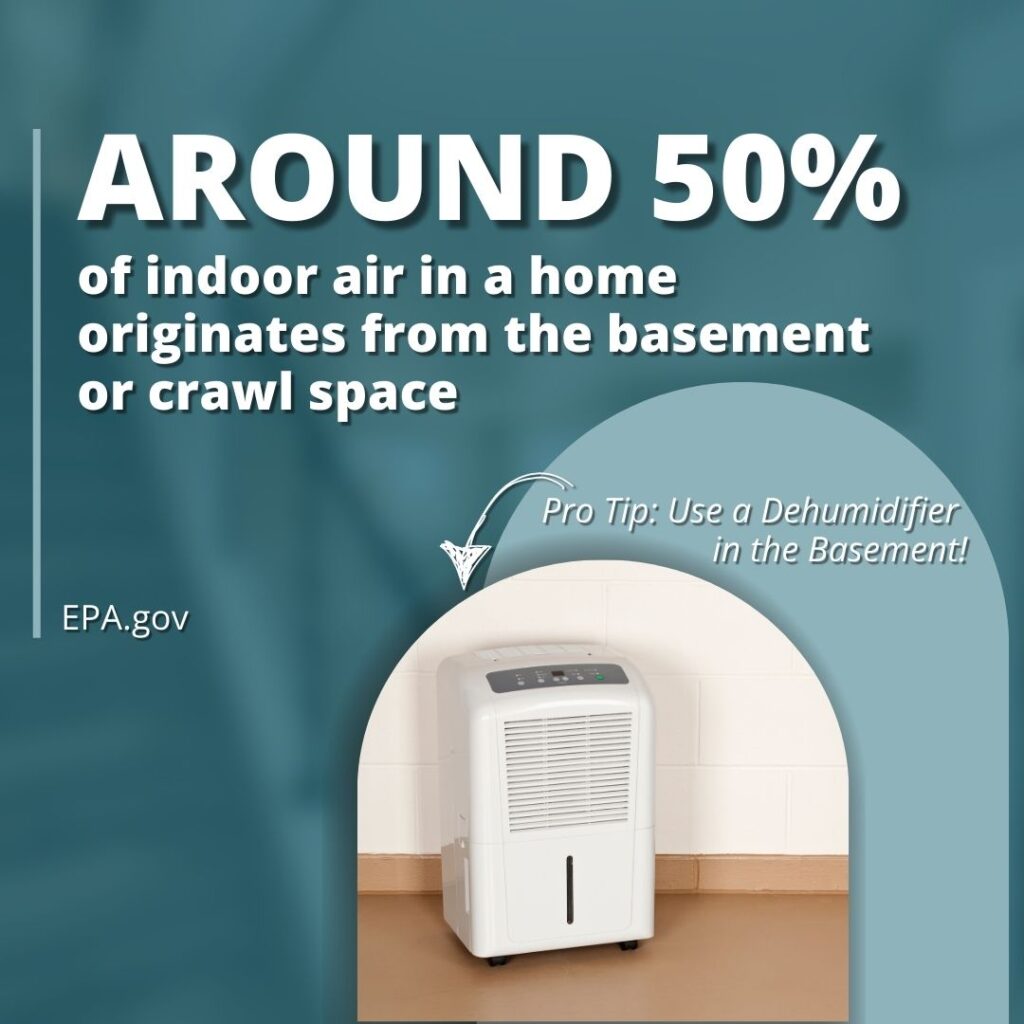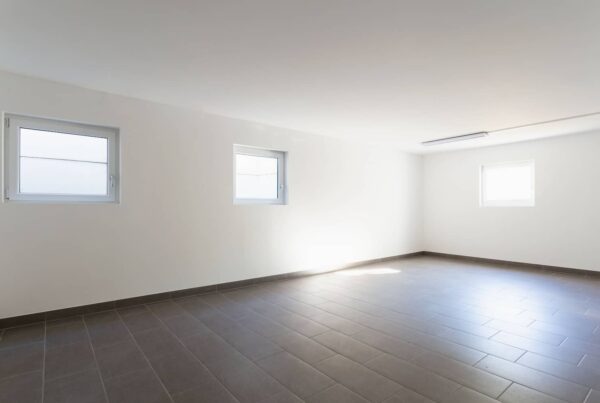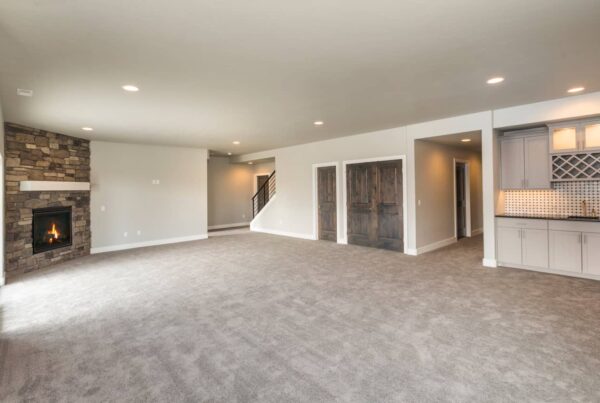
Many people use “cellar” vs “basement” as if they mean the same thing. In some homes, they overlap in function. But when it comes to structure, value, and maintenance, a cellar is not just a basement by another name.
Whether you’re buying a home in New England or trying to figure out what’s below your own floors, knowing the difference can help you prevent moisture issues, pest problems, and long-term structural damage.
Here’s how to tell what you have and what it needs.
Cellar vs Basement: What’s the Actual Difference?
The main difference between a cellar and a basement comes down to depth, finish level, and function.
- A basement is usually a full story tall, partially or fully below ground, and often finished or finishable. It may include living space, laundry, or mechanical systems.
- A cellar is typically shorter in height (less than 7 feet), fully underground, and unfinished. It’s often used for storage, utilities, or old stone foundation access.
Over 28% of homes in the Northeast have a basement. Many older homes, especially in New Hampshire, Massachusetts, and Maine, have fieldstone or rubble wall cellars built before modern foundations were common. These spaces were originally intended to store food, wine, or coal, not to serve as living areas.
Knowing which one you have is more than a vocabulary lesson. It affects how you clean, repair, waterproof, and renovate the space.

Common Problems Found in Cellars
1. Moisture and Water Intrusion
Older stone or brick cellar walls are prone to seepage, especially after rain or snowmelt. Without modern waterproofing systems, these spaces often feel damp or musty year-round.
In fact, the EPA reports that 50% of indoor air in a home originates from the basement or crawl space, meaning moisture in a cellar doesn’t just stay below ground. It can affect the health and humidity of your entire home.
Signs of moisture intrusion include:
- Damp or crumbling walls
- Water stains or mineral deposits
- Rusted pipes or shelves
- Musty odors and mold
2. Inadequate Drainage or Grading
Many older homes were built before perimeter drainage systems were common. Combined with poor yard grading, this allows water to collect near the foundation, increasing the risk of leaks.
3. Pest Intrusion
Stone foundation gaps, open vents, and deteriorating mortar can let in rodents, insects, or snakes. Mice only need a hole the size of a dime to get in, and once they’re inside, they can nest in insulation or stored belongings.
4. Structural Settling
Cellars with fieldstone or rubble foundations often lack footings or modern reinforcements. Over time, walls may shift, crack, or bow inward.
Look for signs like misaligned door frames or gaps where walls meet floors.
Basement Maintenance Issues to Watch For
1. Foundation Cracks
Even newer basements can develop vertical or stair-step cracks in poured concrete or block walls. These should be monitored closely. Some cracks are cosmetic, but others indicate hydrostatic pressure or soil movement.
2. Humidity and Mold Growth
Finished basements often trap humidity, especially if there’s carpet, drywall, or furniture. Mold can begin growing within 24 to 48 hours in damp conditions. A dehumidifier and proper insulation are essential.
3. Sump Pump Failure
Many basements rely on sump pumps to control groundwater. These need regular testing and backup power options in case of storms or outages.
4. Poor Ventilation
If your basement is finished but lacks proper HVAC returns or exhaust vents, stale air and moisture can build up behind walls, creating the perfect environment for hidden mold or wood rot.

What Do Home Inspectors Check in Both Spaces?
At Alpha Building Inspections, we assess basements and cellars thoroughly to help buyers and homeowners understand the condition and risks of their below-grade spaces.
A typical inspection includes:
- Visual review of foundation walls for cracks, leaning, or water stains
- Moisture readings in walls and floors
- Checking for mold, mildew, or condensation
- Examining insulation, joists, and support beams
- Verifying sump pump function (if present)
- Inspecting ventilation, window wells, and crawlspace entries
- Identifying signs of past or active pest entry
- Reviewing grading and drainage around the home’s perimeter
For older homes, we also assess historic materials like brick or stone to note wear and preservation concerns.
Other Questions Homeowners Ask
Can a cellar be converted into a usable room?
Sometimes, but not always. If the ceiling height is below code (typically 7 feet in most towns), or if there’s no safe egress window, it can’t be used as a legal living space. Local code enforcement will need to approve any conversion.
Is it worth waterproofing a cellar?
In many cases, yes. Sealing interior walls, improving yard grading, or installing a perimeter drain can reduce moisture and prevent long-term structural issues. Your inspector can help prioritize based on current conditions.
How can I tell if my basement is dry enough for storage?
Use a hygrometer to check humidity. Ideal levels should stay below 60%. Anything above that can promote mold growth or warp materials.
If it feels musty or the floor is cold and damp, consider improving drainage and adding a dehumidifier.
When to Call a Professional
If your cellar smells musty, shows signs of standing water, or has shifting walls, it’s time for a professional opinion. These spaces are often ignored for years, allowing small problems to grow unnoticed.
If you’re buying a home in Maine, New Hampshire, or Massachusetts, don’t assume a finished basement means it’s dry and safe. And don’t assume a cellar is off-limits to concern just because it’s old or unused.
A detailed inspection can reveal hidden moisture issues, safety hazards, or structural risks that could cost thousands later.
Conclusion
Understanding the difference between a cellar vs a basement helps you care for your home the right way. Both require regular maintenance, moisture control, and structural awareness, especially in New England homes where older construction methods are common.
If you’re unsure what’s beneath your home or want peace of mind before buying or renovating, Alpha Building Inspections can help.
Our team knows how to spot problems early, explain what they mean, and help you move forward with confidence.



